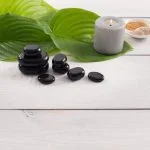Lemongrass oil benefits aromatherapy by offering a natural way to promote well-being and wellness. This article will explore the use of lemongrass oil in aromatherapy, from its historical origins to its modern-day applications.
We will delve into the science behind lemongrass oil benefits in aromatherapy, as well as how to use it effectively for both physical and emotional health. Additionally, we will discuss the safety precautions and considerations when using lemongrass oil in aromatherapy, as well as its other uses and applications beyond the realm of wellness.
Lemongrass oil has been used for centuries in traditional medicine practices and is known for its refreshing citrus scent. In this section, we will introduce the concept of lemongrass oil aromatherapy and its potential impact on overall health. Understanding the basics of lemongrass oil and aromatherapy will provide a solid foundation for exploring its various benefits and applications.
As we embark on this journey into the world of lemongrass oil aromatherapy, it is essential to gain insights into the historical significance of this natural remedy. By delving into its past applications, we can better appreciate its enduring value in modern holistic practices. Moreover, uncovering the historical context will help us understand how lemongrass oil has evolved over time as a popular choice for promoting physical, emotional, and mental well-being through aromatherapy.
History of Lemongrass Oil and Its Use in Aromatherapy
Lemongrass has been used for centuries in various cultures for its culinary and medicinal properties. The use of lemongrass oil in aromatherapy can be traced back to ancient Indian and Southeast Asian traditions, where it was commonly used for relaxation and to alleviate stress. Its aromatic, citrusy scent has always made it a popular choice for addressing emotional and mental well-being.
Traditional Use of Lemongrass Oil
In traditional medicine, lemongrass oil was often used to treat digestive issues, muscle pain, and as a natural insect repellent. Its use in aromatherapy was also prominent in ancient massage practices to help relieve tension and promote overall relaxation. The oil was praised for its uplifting and energizing effects on the mind and body.
Lemongrass Oil in Modern Aromatherapy
As interest in natural remedies and holistic approaches to health has grown, lemongrass oil has gained popularity in modern aromatherapy practices. Its unique blend of components such as citral, geraniol, and limonene contribute to its therapeutic benefits that make it suitable for stress relief, anxiety reduction, and even improved focus. Moreover, the refreshing scent of lemongrass oil is often used in diffusers or added to massage oils for its mood-boosting qualities.
The historical use of lemongrass oil as an essential component of aromatherapy further underscores its significance as an effective tool for promoting overall well-being. Whether easing physical discomfort or providing emotional support, the history of lemongrass oil showcases its enduring role in holistic health practices around the world.
The Science Behind Lemongrass Oil Benefits in Aromatherapy
Lemongrass oil has been used for centuries in traditional medicine and aromatherapy practices. Its wide range of benefits has made it a popular choice for holistic wellness. The science behind the benefits of lemongrass oil lies in its chemical composition, which includes compounds such as citral, geraniol, and limonene. These compounds have been shown to possess antimicrobial, anti-inflammatory, and antioxidant properties, making lemongrass oil a valuable tool in promoting overall health and well-being.
Research on the use of lemongrass oil in aromatherapy has revealed its potential to reduce stress and anxiety levels. A study published in the journal Phytomedicine found that inhalation of lemongrass oil vapor led to a significant reduction in anxiety and tension levels among participants. This suggests that the aroma of lemongrass oil can have a calming effect on the mind and emotions.
Furthermore, lemongrass oil has been studied for its potential role in promoting better sleep quality. A research article published in Complementary Therapies in Medicine found that the use of lemongrass oil aromatherapy significantly improved sleep quality among participants with insomnia. The soothing aroma of lemongrass oil is believed to create a relaxing environment conducive to better sleep.
In addition to its psychological benefits, lemongrass oil also exhibits antimicrobial properties that can help purify the air when used in aromatherapy diffusers. Its ability to combat airborne bacteria and viruses makes it a valuable tool for maintaining a healthy indoor environment. With its diverse range of scientifically-backed benefits, it is clear that lemongrass oil holds great potential for enhancing overall well-being through aromatherapy practices.
How to Use Lemongrass Oil in Aromatherapy
Lemongrass oil is a popular essential oil that has been used in aromatherapy for its soothing and uplifting properties. There are several ways to use lemongrass oil in aromatherapy, each with its own benefits and applications.
Diffusion
One of the most common ways to use lemongrass oil in aromatherapy is through diffusion. Adding a few drops of lemongrass oil to a diffuser can help create a calming and refreshing atmosphere in any space. Diffusing lemongrass oil can also help purify the air and eliminate unwanted odors, making it an ideal choice for home or office spaces.
Topical Application
Lemongrass oil can also be used topically in aromatherapy when diluted with a carrier oil. Applying diluted lemongrass oil to the skin through massage or as part of a skincare routine can help promote relaxation and relieve muscle tension. It is important to perform a patch test before applying lemongrass oil topically, as it may cause skin irritation in some individuals.
Inhalation
Inhalation is another effective way to use lemongrass oil in aromatherapy. Adding a few drops of lemongrass oil to hot water and inhaling the steam can help alleviate congestion and respiratory discomfort. This method can provide quick relief for symptoms of colds or allergies and promote clearer breathing.
Incorporating lemongrass oil into your aromatherapy practice can provide numerous benefits for physical, emotional, and mental well-being. Whether chosen for its refreshing scent or its potential health benefits, using lemongrass oil in various forms of aromatherapy can contribute to overall wellness and relaxation.
Health Benefits of Lemongrass Oil Aromatherapy
Lemongrass oil has been used for centuries in traditional medicine and aromatherapy, offering various health benefits to those who use it. When it comes to aromatherapy, lemongrass oil is known for its antibacterial, anti-inflammatory, and analgesic properties. These properties make it a popular choice for those seeking relief from physical and mental ailments.
The use of lemongrass oil in aromatherapy can be traced back to ancient Indian and Chinese medicine, where it was used to treat a variety of conditions, including digestive issues, skin conditions, and even fevers. Its refreshing citrus scent has also made it a staple in many cultures for purifying the air and promoting relaxation.
Scientific studies have shown that lemongrass oil contains compounds such as citral, which is known for its antimicrobial properties, making it an effective natural remedy for fighting off bacteria and infections. In addition, its anti-inflammatory effects can help reduce pain and swelling, making it a valuable asset in the treatment of muscle aches and joint pain.
Incorporating lemongrass oil into your aromatherapy routine can help promote overall well-being by addressing both physical and mental health concerns. Its ability to alleviate stress, anxiety, and depression makes it a versatile essential oil with numerous benefits for the mind and body.
| Health Benefits | Data |
|---|---|
| Antibacterial Properties | Effective natural remedy for fighting off bacteria and infections |
| Anti-Inflammatory Effects | Reduces pain and swelling; valuable asset in treating muscle aches and joint pain |
| Mental Health Benefits | Alleviates stress, anxiety, and depression; promotes relaxation |
Emotional and Mental Benefits of Lemongrass Oil in Aromatherapy
Lemongrass oil has long been utilized for its aromatic and therapeutic properties in the practice of aromatherapy. Its refreshing, citrusy scent has been shown to have numerous emotional and mental benefits, making it a valuable essential oil for promoting overall well-being.
One of the key emotional benefits of lemongrass oil in aromatherapy is its ability to uplift and energize the mind. The invigorating scent is known to dispel feelings of lethargy and fatigue, making it an excellent choice for those seeking a natural mood booster. Additionally, lemongrass oil can help alleviate stress and anxiety, promoting a sense of calm and relaxation when used in aromatherapy practices.
In terms of mental benefits, lemongrass oil has been found to enhance mental clarity and focus. The stimulating aroma can help sharpen cognitive function and improve concentration, making it a popular choice for individuals looking to enhance their productivity and mental alertness through aromatherapy. Furthermore, the uplifting scent of lemongrass oil can also promote positivity and optimism, helping to create a more balanced state of mind.
When incorporating lemongrass oil into your aromatherapy routine, consider using it in a diffuser to fill your space with its invigorating aroma or adding a few drops to a warm bath for a relaxing soak. Additionally, you can create your own DIY room spray or linen spray by mixing lemongrass oil with water in a spray bottle.
For a quick pick-me-up throughout the day, dilute lemongrass oil with a carrier oil and apply it to pulse points for an instant mood boost. Whether used alone or blended with other complementary essential oils, lemongrass oil offers a range of emotional and mental benefits that make it a valuable tool for enhancing overall well-being through aromatherapy.
- Uplifts and energizes the mind
- Alleviates stress and anxiety
- Enhances mental clarity and focus
- Promotes positivity and optimism
Safety Precautions and Considerations When Using Lemongrass Oil in Aromatherapy
When using lemongrass oil in aromatherapy, it is important to take certain safety precautions and considerations to ensure a positive and safe experience. Here are some important tips to keep in mind:
1. Dilution: Lemongrass oil is potent and should always be diluted before use in aromatherapy. It is recommended to dilute lemongrass oil with a carrier oil such as coconut, almond, or jojoba oil. The general rule of thumb is to use 2-3 drops of lemongrass oil per teaspoon of carrier oil for topical application.
2. Skin Sensitivity: Some individuals may experience skin sensitivity or irritation when using undiluted lemongrass oil. It is important to conduct a patch test before using lemongrass oil topically. Apply a small amount of diluted oil to the inner forearm and wait 24 hours to check for any adverse reactions.
3. Inhalation Precautions: When using lemongrass oil for inhalation in aromatherapy, it’s important to use it in a well-ventilated area. Do not inhale the oil directly from the bottle, and avoid prolonged exposure to the scent.
In addition to these safety precautions, there are also some considerations to keep in mind when using lemongrass oil in aromatherapy:
– Keep out of reach of children and pets.
– Store lemongrass oil in a cool, dark place away from direct sunlight.
– Consult with a healthcare professional before using lemongrass oil if you are pregnant, nursing, or have any underlying health conditions.
By following these safety precautions and considerations, you can enjoy the many benefits of lemongrass oil aromatherapy while ensuring a safe and pleasant experience.
Other Uses and Applications of Lemongrass Oil Beyond Aromatherapy
Lemongrass oil is not only beneficial in aromatherapy but also has a wide range of uses and applications beyond just its pleasant scent. Due to its natural properties, lemongrass oil has been used for centuries in traditional medicine, skincare products, and even as a natural insect repellent.
One of the most popular non-aromatherapy uses of lemongrass oil is for skincare. The antiseptic and astringent properties of lemongrass oil make it an effective ingredient in skincare products such as soaps, lotions, and creams. It is known to help minimize pores, limit the secretions of oil glands, and tighten skin. The oil’s anti-inflammatory properties also make it useful in treating skin irritations and infections.
In addition to skincare, lemongrass oil is commonly used as a natural insect repellent. The strong citrus scent naturally deters insects like mosquitoes, flies, ants, and ticks. This makes lemongrass oil an ideal alternative to chemical-laden bug sprays and lotions. Furthermore, research has shown that lemongrass essential oil can provide up to 2 hours of protection against mosquitoes when applied on the skin at 100% concentration.
| Benefit/Application | Details |
|---|---|
| Skincare | The antiseptic and astringent properties are effective in minimizing pores and limiting secretions of oil glands |
| Insect Repellent | The strong citrus scent naturally deters insects like mosquitoes when applied on the skin at 100% concentration |
Conclusion
In conclusion, lemongrass oil has a long history of use in aromatherapy and offers a wide range of benefits for both physical and mental well-being. The science behind lemongrass oil’s benefits in aromatherapy is backed by various studies that support its effectiveness in promoting relaxation, relieving stress, and even boosting immunity. With its anti-inflammatory, antibacterial, and antioxidant properties, lemongrass oil is a versatile tool for enhancing overall health.
When using lemongrass oil in aromatherapy, it’s important to follow safety precautions and consider individual sensitivities or allergies. Diluting the oil before applying it to the skin or using it in a diffuser can help prevent any adverse reactions. Additionally, exploring other uses and applications of lemongrass oil beyond aromatherapy can further expand its potential benefits for wellness.
Overall, incorporating lemongrass oil into your aromatherapy routine can be a powerful tool for promoting holistic well-being. Whether you are seeking relief from physical ailments or looking to improve your emotional and mental state, lemongrass oil offers a natural and effective solution. By harnessing the power of lemongrass oil in aromatherapy, individuals can experience a heightened sense of wellness and an improved quality of life.
Frequently Asked Questions
What Is the Spiritual Use of Lemongrass?
The spiritual use of lemongrass is primarily centered around its ability to cleanse and purify the energy in a space or individual. It is often used in spiritual practices to ward off negative energy and invite positivity and light.
What Bugs Does Lemongrass Oil Repel?
Lemongrass oil is known for its ability to repel insects such as mosquitoes, ants, and flies. Its strong citrusy scent acts as a natural repellent, making it a popular choice for natural bug spray or as an ingredient in candles and diffusers to keep bugs at bay.
How Do You Use Lemongrass for Aroma?
Lemongrass can be used for aroma in various ways, such as through aromatherapy diffusers, room sprays, or scented candles. Its refreshing and uplifting scent can help create a relaxing atmosphere and promote feelings of positivity and clarity. Additionally, it can be used in bath products like soaps and oils for a rejuvenating experience.

Are you looking for a natural way to improve your health and wellbeing?
If so, aromatherapy may be the answer for you.





